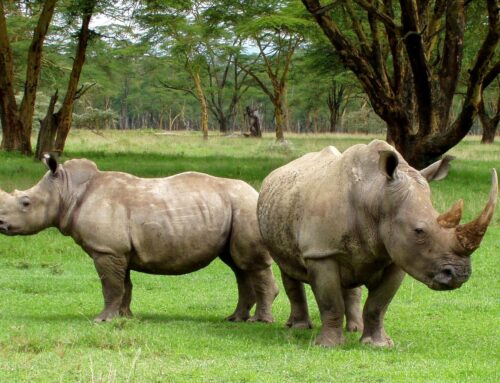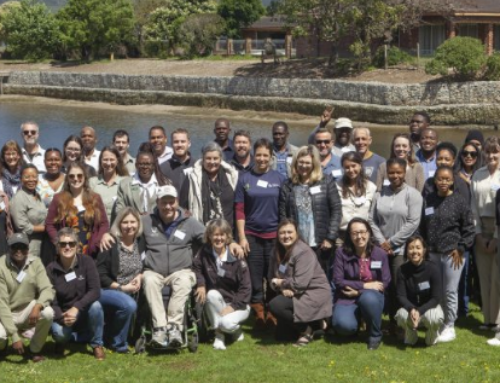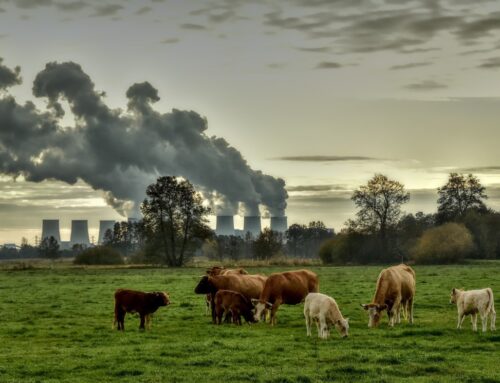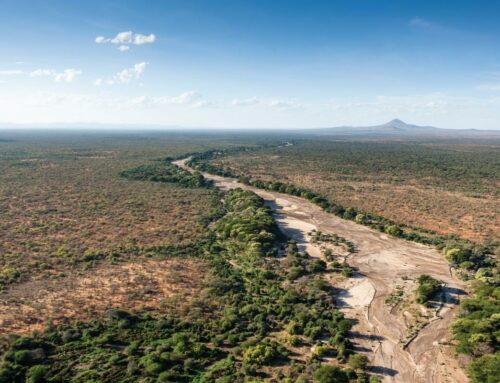Call for applications: PhD scholarship for 2026
Deadline for applications: 16 June 2025
Context
Achieving a just and sustainable future requires deep, transformative change—but the pathways and actions to enable such change remain unclear. As global challenges such as climate change, biodiversity loss, food and water insecurity, growing socioeconomic inequality and political instability intensify, the need for innovative approaches to governing both societies and environments becomes increasingly urgent. Among emerging technologies, artificial intelligence (AI) stands out as a transformative new development. While it holds potential to support sustainability transformations, it also poses significant risks.
Since the launch of ChatGPT in 2022, the far-reaching social implications of AI have become more evident. There is considerable attention – and hype – on the future scientific and economic benefits of AI, but also growing concern about social and political risks. These include the unethical use of data, algorithmic bias, surveillance and the extraordinary energy demands of large-scale AI production. The uneven global distribution of AI infrastructure and capacity also raises equity concerns, particularly for the global South.
Call for applications
We are looking for a motivated individual with a strong academic background and a keen interest in bridging the fields of sustainability transformations and the social implications of AI and digital technologies. The ideal candidate will demonstrate the ability to think systemically, engage across disciplinary boundaries between the natural and social sciences, and be an active member of the intellectual communities within both the Centre for Sustainability Transitions and the Department of Sociology and Social Anthropology. A collaborative spirit and a willingness to participate in interdisciplinary research teams are essential.
We invite applications for an NRF-funded PhD position to explore a topic at the intersection of AI/technology studies and sustainability transformations. The successful candidate will develop a research project aligned with the themes outlined in this call and will be co-supervised by Professor Reinette (Oonsie) Biggs at the Centre for Sustainability Transitions (CST) and Dr Lloyd Hill at the Department of Sociology and Social Anthropology.
Centre for Sustainability Transitions (CST), Stellenbosch University
The Centre for Sustainability Transitions builds on a strong history of transdisciplinary research and complexity studies at Stellenbosch University, providing a vibrant hub for solution-oriented sustainability science that hosts leading scientists and students from diverse disciplinary backgrounds in a state-of-the-art research centre. The primary objective of the CST is to provide transformational knowledge on the dynamics of multi-scale social-ecological change, and strategic insights into the new modes of research and governance that can bring about a just transition to a more equitable and sustainable society, in southern Africa and globally. The CST hosts a tailored PhD programme which aims to support inter- and trans-disciplinary sustainability research, including two foundational courses to support students entering the field from diverse backgrounds, and a course that supports thesis by publication format.
Department of Sociology and Social Anthropology
The Department of Sociology and Social Anthropology is a leading centre for social research and teaching in South Africa. It operates within a dynamic network of research partnerships and collaborations involving academic institutions, NGOs, and government departments across South Africa, the African continent, and beyond. Founded on a strong tradition of interdisciplinary cooperation between sociologists and social anthropologists, the department offers an exceptional environment for exploring a wide range of pressing global issues that transcend traditional disciplinary boundaries. Research on sustainability is well-established, and the Department has an emerging research focus on the social implications of generative AI. The Department has an integrated PhD programme, which supports advanced research and leads to doctoral degrees in either sociology or social anthropology.
Funding
The successful candidate will receive an NRF doctoral studies scholarship, through the SARChI Chair in Social-Ecological Systems and Resilience held by Prof Biggs. The NRF minimum academic requirement for PhD funding is 65% average for the preceding Masters degree. There is no age requirement.
Successful applicants will be funded either at Full Cost Study (FCS) or Partial Cost of Study (PCS). The FCS funding will be awarded to South African citizens and permanent residents only, who are either exceptional academic achievers or financially needy (i.e., those whose combined household family income is less or equal to R350 000 per annum), or living with a disability. PCS funding will be awarded to 5% of international students including South African citizens and permanent residents who could not be funded under FCS but meet other minimum requirements for the NRF scholarship funding criteria.
Subject to availability of funds, CST aims to top-up NRF funding to R 180 000 pa (R 15 000 per month). Tuition and reasonable running and travel expenses will also be covered where possible. Successful completion of two non-credit bearing modules and defense of a research proposal within the first year will be a pre-requisite for continuing with the PhD.
Requirements
Applicants must meet ALL of the following criteria:
- A master’s degree with an average mark of 65% or higher;
- A record of postgraduate research in fields relevant to the scope of this call. This relevance must be explained in a covering letter;
- Based on the NRF’s funding guidelines, strong preference will be given to South African nationals and under-represented groups.
To apply
Applications will follow a 2-step process:
Step 1: Apply to CST
Interested candidates should apply to the CST by emailing the following documents to cstenquiries@sun.ac.za by 16 June 2025 with the subject line “PhD application: AI for Sustainability Transformations”:
- a motivation letter that outlines: (1) your previous academic and/or work experience, (2) your research field(s) and their relevance to the scope of this call, and (3) a brief description of your idea for the PhD project;
- a detailed CV that includes your academic record, previous work experience, any academic publications on which you have been an author, and the names of at least two academic referees;
- transcripts of your academic qualifications;
- One example of recent written work (e.g. a journal article or thesis chapter).
Interviews with shortlisted candidates will be conducted on Friday afternoon 20 June 2025. Please keep this afternoon open.
Step 2: Apply to NRF
Selected candidates will then be instructed to apply on the NRF system by 4 July 2025, and link their application to Prof Biggs’ SARChI Chair. Instructions on this process will be communicated to successful applicants after step 1. Please note that this is a substantial application process; successful candidates in step 1 should set aside adequate time to prepare this application between 21 June and 4 July.
Please note that funding will only be awarded to candidates selected and approved by the NRF in step 2.
Enquiries
Enquiries can be directed to cstenquiries@sun.ac.za. Please use the subject line “Enquiry: BII4Africa” as multiple positions are being advertised.












